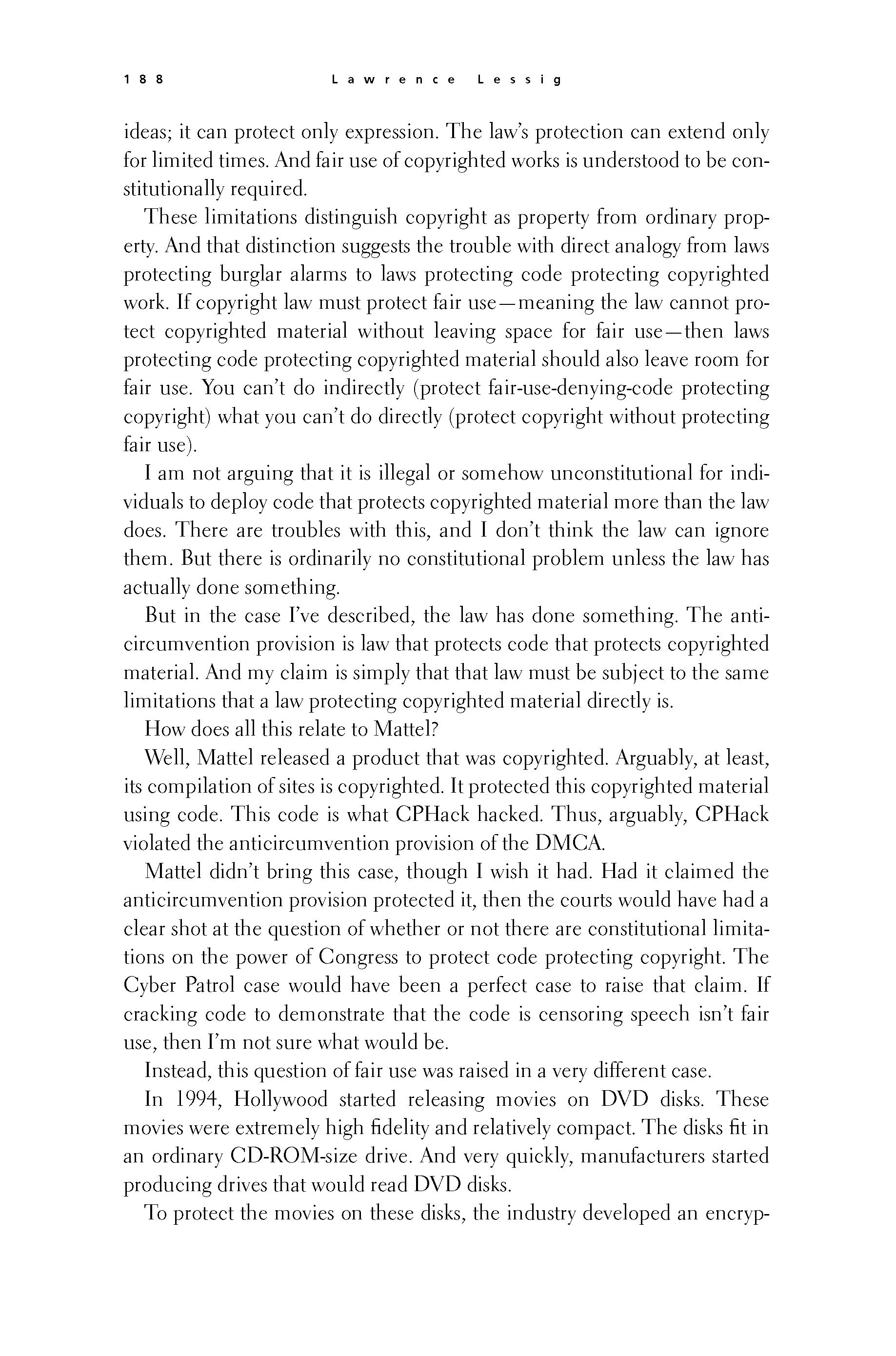 p187 _
-chap- _
toc-1 _
p188w _
toc-2 _
+chap+ _
p189
p187 _
-chap- _
toc-1 _
p188w _
toc-2 _
+chap+ _
p189
ideas; it can protect only expression. The law's protection can extend only
for limited times. And fair use of copyrighted works is understood to be con-
stitutionally required.
These limitations distinguish copyright as property from ordinary prop-
erty. And that distinction suggests the trouble with direct analogy from laws
protecting burglar alarms to laws protecting code protecting copyrighted
work. If copyright law must protect fair use -- meaning the law cannot pro-
tect copyrighted material without leaving space for fair use -- then laws
protecting code protecting copyrighted material should also leave room for
fair use. You can't do indirectly (protect fair-use-denying-code protecting
copyright) what you can't do directly (protect copyright without protecting
fair use).
I am not arguing that it is illegal or somehow unconstitutional for indi-
viduals to deploy code that protects copyrighted material more than the law
does. There are troubles with this, and I don't think the law can ignore
them. But there is ordinarily no constitutional problem unless the law has
actually done something.
But in the case I've described, the law has done something. The anti-
circumvention provision is law that protects code that protects copyrighted
material. And my claim is simply that that law must be subject to the same
limitations that a law protecting copyrighted material directly is.
How does all this relate to Mattel?
Well, Mattel released a product that was copyrighted. Arguably, at least,
its compilation of sites is copyrighted. It protected this copyrighted material
using code. This code is what CPHack hacked. Thus, arguably, CPHack
violated the anticircumvention provision of the DMCA.
Mattel didn't bring this case, though I wish it had. Had it claimed the
anticircumvention provision protected it, then the courts would have had a
clear shot at the question of whether or not there are constitutional limita-
tions on the power of Congress to protect code protecting copyright. The
Cyber Patrol case would have been a perfect case to raise that claim. If
cracking code to demonstrate that the code is censoring speech isn't fair
use, then I'm not sure what would be.
Instead, this question of fair use was raised in a very different case.
In 1994, Hollywood started releasing movies on DVD disks. These
movies were extremely high fidelity and relatively compact. The disks fit in
an ordinary CD-ROM-size drive. And very quickly, manufacturers started
producing drives that would read DVD disks.
To protect the movies on these disks, the industry developed an encryp-
[[188]]
p187 _
-chap- _
toc-1 _
p188w _
toc-2 _
+chap+ _
p189